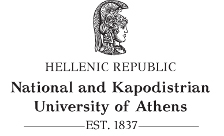Course:Environmental economics
Code: ECO312
Semester:A
Instructor: Andreas A. Papandreou
Aims & Objectives
Forging a good relationship between the natural environment and the economy is the biggest challenge we face in advancing the welfare of humanity. The main objective of this course is to provide an understanding of the deep interdependence between economy and natural environment. The underlying causes of environmental degradation will become apparent as well as the public policies required to better manage and protect the environment. A healthy natural environment is the key to sustainable development.
The environment provides critical natural services and resources for economic development and welfare. Unfortunately, the economy is often destructive of nature undermining the very foundations of development. Seeking a more harmonious relationship between economy and environment is central to our addressing most of the critical issues of our modern world. This is the case for such global issues as climate change, the energy crisis, the sufficiency of food, and genetically modified organisms. It is also the case for national and local issues such as waste management, river pollution, local atmospheric pollution, congestion, protection of our forests, depletion of fisheries, and energy conservation of our buildings. Economic analysis is necessary in order to understand both the causes of environmental degradation and the means to protect the environment. The proper management and protection of the environment and our natural resources is the key to sustainable development.
In this course you will hear accounts of how destruction of our planet will bring about a grim future for all, but you will also hear of optimistic accounts of technological advancement that will solve all environmental challenges. You will hear about a bet made between an ecologist and economist that the price of oil will surpass $200 within a year because we are running out of oil reserves. You will learn about new innovative ideas that are already being applied like a stock market in carbon dioxide permits in Europe and automatic electronic pricing of cars entering central London. You will hear about the provocative notion of "the monetary value of life" and how it can be used to design policies to save more lives but how easily it can be misunderstood and misused.
This course provides a general introduction to the economics and management of natural resources and the environment. The emphasis is on the underlying theory and methodology with references to current challenges like climate change and the global fisheries crisis. The first part of the course provides an introduction to the principles of environmental and natural resource economics including cost benefit analysis. It tries to answer questions like “How do we determine the right use of our natural resources and environmental services?” The second part introduces the theory of renewable and depletable resources discussing issues like “What is the optimal rate of oil extraction?” or “Is the world in danger of running out of critical natural resources?” The third part of the course looks into the principles of designing environmental policy with specific reference to atmospheric pollution, water pollution and climate change. It seeks to improve our understanding of questions like “Should firms pay a tax for the amount of pollution they emit?” or “Should we be able to purchase a right to pollute?” Finally, the course considers the broader relationship between economic development, the environment and equality.
Course Books
Greek:
Tom Tietenberg και Lynne Lewis (2010), Οικονομική του Περιβάλλοντος και των Φυσικών Πόρων, Όγδοη Έκδοση, Εκδόσεις Gutenberg.
Sylvie Faucheux και Jean-Francois Noel (2007), Οικονομική των Φυσικών Πόρων και του Περιβάλλοντος, Εκδόσεις Gutenberg
English (2):
Tietenberg, Thomas H, and Lynne Lewis.Environmental & Natural Resource Economics. Boston: Pearson, 2011 (νέα ΑγγλικήέκδοσητουΕλληνικούκύριου βοηθήματος)
Hanley, Nick, Jason F Shogren, and Ben White. Introduction to Environmental Economics.Oxford ; New York: Oxford University Press, 2001. (Νέα έκδοσητοΦεβρουάριοτου 2011)
Perman, Roger, and Roger Perman. Natural Resource and Environmental Economics. Harlow, Essex; New York: Pearson Addison Wesley, 2011.
